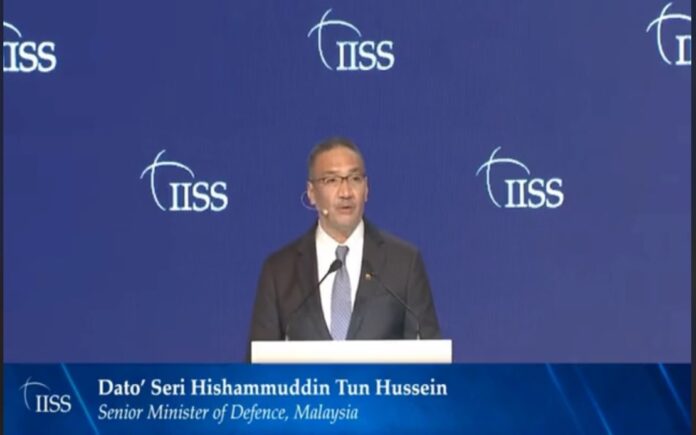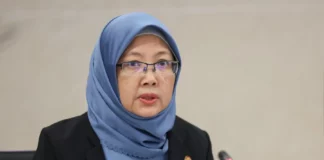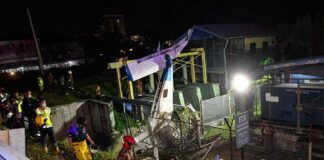SINGAPORE, June 11 — Food insecurity is one of the four common challenges that also necessitates security cooperation, says Malaysia’s Senior Minister of Defence Datuk Seri Hishammuddin Tun Hussein.
Speaking on the topic titled “Developing New Forms of Security Cooperation” at a Plenary Session of The 19th Shangri-La Dialogue today, Hishammuddin highlighted that food insecurity threatened societies and exacerbated conflicts.
“Indeed, no country is immune to this. COVID-19 has already seen supply chain disruptions globally where national lockdowns have halted the flow of food supplies and raw goods. Now, the Ukraine-Russia conflict is making the situation much worse,” he pointed out.
Commodity price volatility has surged, with food prices reaching levels not seen since the 2007-08 price spikes, he added.
“But why some of you may wonder am I highlighting food security in the Shangri-La Dialogue – how does it link to security and defence?,” he asked the audience.
“Let’s look back just 10 years ago when people took to the streets of Tunisia, Egypt, and elsewhere in the Arab world, protesters were not only crying out for freedom and social justice but they were also crying out for bread.
“The cost of pantry staples had jumped because of the skyrocketing price of commodities like wheat, stoking fury, warranted or otherwise, against Governments,” he said.
Stressing further, Hishammuddin said the combination of unhappiness from two years of the pandemic and rising food prices may push “our people over the edge, generating a wave of political instability, with potential riots and protests affecting the security environments in our nations.”
“In Sri Lanka, protests have erupted over shortages of gas and other basic goods. Double-digit inflation in Pakistan also arguably contributed to the recent change of government there.
“Peru has likewise been rocked by anti-government demonstrations sparked by rising fuel prices, which have sadly resulted in a number of deaths. Unrest in certain parts of the world could lead to security threats to us all.
“It’s now obvious that threats are no longer confined to political factors, but also economic considerations,” he said.
However, the minister said he believes that the worst may be yet to come.
“The damage in Ukraine, a major exporter of many basic commodities, as well as harsh sanctions on Russia, is expected to spur further price increases in the coming months.
“The conflict is in Europe, but the implications and damage are global. Like it or not, food security is critical to peace and stability, there are no two ways about it,” he said.
Besides food insecurity, the other three common challenges that necessitate security cooperation highlighted by Hishammuddin include an increase in transboundary crime from border reopenings, an upsurge in online disinformation arising from terror groups and extremists, and the continued threat of biological warfare.
Joining him at the session were Deputy Prime Minister and Minister for Defence of Australia, Richard Marles, and Deputy Prime Minister and Minister of State for Defense Affairs of Qatar, Dr Khalid bin Mohammad Al Attiyah.
















